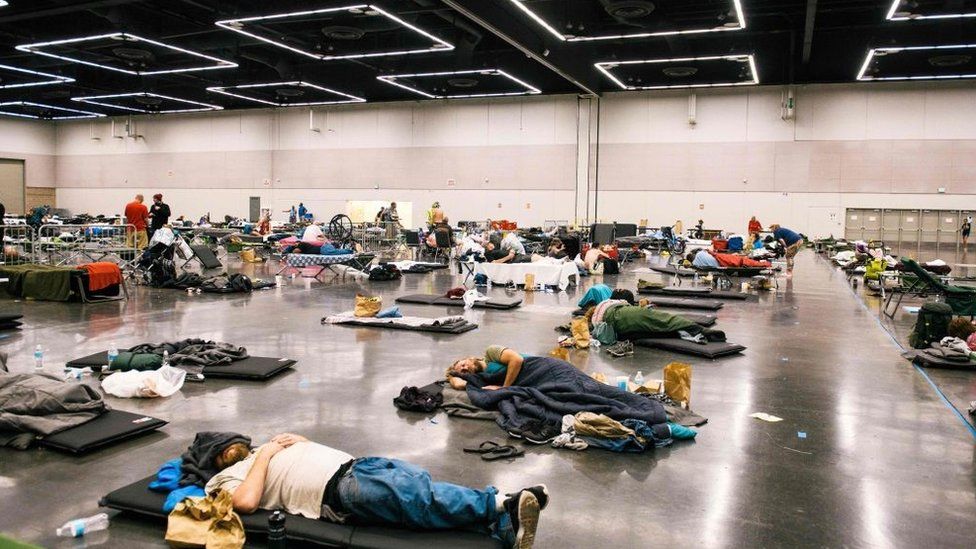Washington. An extreme heatwave has brought record temperatures to western Canada and contributed to dozens of deaths.
Many homes in British Columbia do not have air conditioning as temperatures are usually far milder during the summer months.
One Vancouver resident told AFP news agency that hotels seemed to be sold out, as people flocked there for air-conditioning, adding: “I’ve never seen anything like this. I hope it never becomes like this ever again.”
The country’s weather service, Environment Canada, has issued heat warnings for the provinces of British Columbia and Alberta, along with areas of Saskatchewan, the Northwest Territories and Manitoba.
Jodi Hughes, weather anchor at Global News Calgary, told the BBC that firefighters were extremely concerned at the possibility of wild fires, possibly sparked by thunderstorms that could occur as the weather pattern changes.
How to ward off the heat
- Stay cool. It may sound obvious, but if your body hits 40C (104F) heat-stroke can set in, which requires urgent medical help, as it could lead to loss of consciousness, organ failure, even death. Danger signs include sweat stopping – feeling hot, but dry – and breathing difficulties
- Food and water. Again obviously, drink water (and avoid diuretics like caffeine) – and don’t take your thirst as a guide, as you could still be dehydrating. Food with high water content is good; having to digest heavy meals isn’t
- Stay in the shade. Indoors if you can. Limit travel to cooler parts of the day if possible. Be careful with exercise
- Clothing. Try to keep covered, but with fabrics like linen and cotton that are more breathable. Wear a hat, preferably with ventilation
- Cooling methods. If you find air-conditioning eco-unfriendly or don’t have it, try fans (maybe with ice cubes in front), gels, face sprays, a cold water bottle, a cool shower. Draw the curtains to cool the room temperature
Records fall in western US
In the US Pacific Northwest on Monday, temperatures hit 46.1C in Portland, Oregon, and 42.2C in Seattle, Washington, the highest levels since record-keeping began in the 1940s, the National Weather Service said.
At least a dozen deaths in Washington and Oregon are believed to be linked to the heatwave.
A doctor in a Seattle hospital told the Seattle Times the number of patients streaming in with heat stroke was comparable to the beginning of the Covid-19 pandemic.
Dr Jeremy Hess said some had kidney or heart problems, and one man had third-degree burns from walking on asphalt.
Seattle resident Mark Aldham set up a cooling system in his front yard with free snacks and drinks. “It is super hot here. So my partner and I, we set up some shade that we have from [Nevada festival] Burning Man to help cool off our neighbourhood and keep everyone safe,” he told Reuters.
The heat has been intense enough to melt cables, shutting down the Portland Streetcar Service on Sunday.

An electrical utility in Spokane, Washington, has also introduced rolling blackouts to cope with huge power demand as residents run air conditioners.
Agricultural workers are often now being given the option to start at dawn and finish at noon. But labour contractors say that some stay on to work regardless of the heat.
One worker was found dead in a field at the end of his shift at a farm in Oregon.
One Seattle resident told AFP that the city felt like a desert: “Normally… 60, 70 degrees [Farenheit] is a great day – everybody is outside in shorts and T-shirts – but this is… ridiculous”.
Amazon allowed members of the public into areas of its Seattle headquarters as a cooling-off location on Monday, while people in Portland also flocked to cooling centres.





